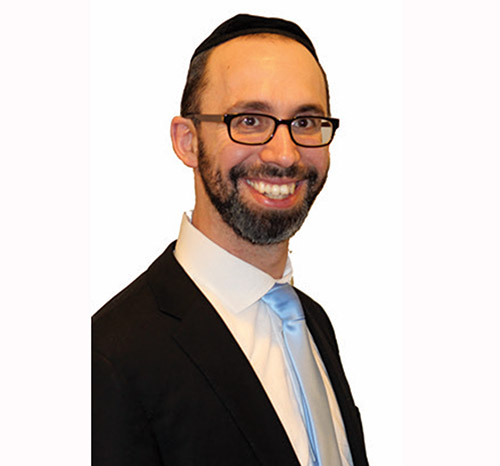
I have a question that you may not have thought of because it appears simple, but as you’ll see the question is more difficult than it looks: What was so difficult about walking into the Yam Suf (the Red Sea), that only Nachshon ben Aminadav chose to do so? Now, I know what you’re waiting to answer: death! No one in his right mind is going to walk into a deep sea; that’s suicide. However, I will point out to you that plenty of Jews have put their lives in extreme danger for the sake of Hashem, such as the Jews in Egypt who tied the Egyptian’s God (lambs) to their doorposts for five days. The ability to sacrifice one’s life for Hashem is embedded into the Jewish neshama (soul); six million holy neshamot gave up their lives during the Holocaust, and our history flows with rivers of blood that were spilled as Jews called out “Shema Yisrael” and died simply for being Jews. Yet the Gemara in Sotah 37a says that all Bnei Yisrael were stalled at the foot of the sea until Nachshon ben Aminadav jumped in first. Why would no one else enter?
Rav Chaim Shmuelevitz, the famous Mirrer rosh yeshiva, provides an answer that gives us a tremendous insight into the mind of a Jew. Self-sacrifice—mesirat nefesh—was nothing new to Bnei Yisrael; Avraham Avinu went into Nimrod’s burning furnace with tremendous emunah, and Yitzchak willingly went to the Akeida. These actions by our Avot set the power and potential for mesirat nefesh into every Jew. Bnei Yisrael would have eagerly given up their lives by jumping into the sea, but in the case of the Yam Suf, Hashem was asking His people to do something entirely different. He was asking them to jump into the sea with the confidence that they would live, not die! Hashem was asking them for an act of self-sacrifice to live! This was an unprecedented dimension of mesirat nefesh that only Nachshon ben Aminadav was able to feel and initiate.
The decision to give up life is an extremely difficult one; however, it’s a momentary decision: once it’s over, it’s over. Mesirat nefesh to live is much harder; it requires one to feel totally at peace and confident in Hashem’s support, even in the face of death.
Throughout the generations, Jews have been tested with the more straightforward form of mesirat nefesh: would they give up their lives to declare “I am a Jew”? In our time and place, however, when we are blessed to live with the freedom to learn Torah and perform mitzvot without any overt persecution, we have a different test. Our test is not whether we are willing to make sacrifices to die as Jews, but rather are we willing to make sacrifices to live as Jews. Are we willing to walk through the day, facing whatever difficulties and challenges are before us, such as earning a living, shalom bayit (keeping peace in the home), raising children, etc. and still feel that Hashem is right there with us, always watching over us. The self-sacrifice Hashem wants from us is to live as a Jew with full confidence that He is backing us up.
Nachshon ben Aminadav was the example for all of us. He strengthened our neshamot to walk in the ways of Hashem. As King David said, “Even as I walk through the valley overshadowed by death I do not fear because Hashem is with me (Tehillim 23:4).” This is a most fitting message that is sung after seuda shelishit, when we are about to end Shabbos and start a new week of a challenging, but faith-filled life.
This Shabbos is Tu B’Shevat (the 15th day of Shevat). Now is the time of year when our Sages observed that the tree sap, which lies dormant and hidden in the tree, begins to rise and rejuvenate the tree. The tree’s true potential to live begins to be shown. Clearly the powers that Hashem embeds in each of His creations is a power of life. So, too, in our case, the Torah and mitzvot are something meant to give us life in this world and the next. As we say every night in Maariv, “Ki heim chayeinu v’orech yameinu—For they [Torah and mitzvot] are our life and the length of our days.” If we must die for Hashem, then we must; but we must be even more motivated to show our embedded faith and strength by living for Hashem!
By Rabbi Baruch Bodenheim
Parshat Beshalach
Rabbi Baruch Bodenheim is the associate rosh yeshiva of Passaic Torah Institute (PTI)/Yeshiva Ner Boruch. PTI has attracted people from all over Northern New Jersey, including Teaneck, Bergenfield, Paramus, Rockaway and Fairlawn. He initiated and continues to lead a full multi-level Gemara learning program in the evenings, gives Halacha and Hashkafah shiurim on Shabbos and, more recently, has spread out beyond PTI to begin a weekly Beis Medrash program with in-depth chavrusa learning in both Livingston and Springfield, NJ.











